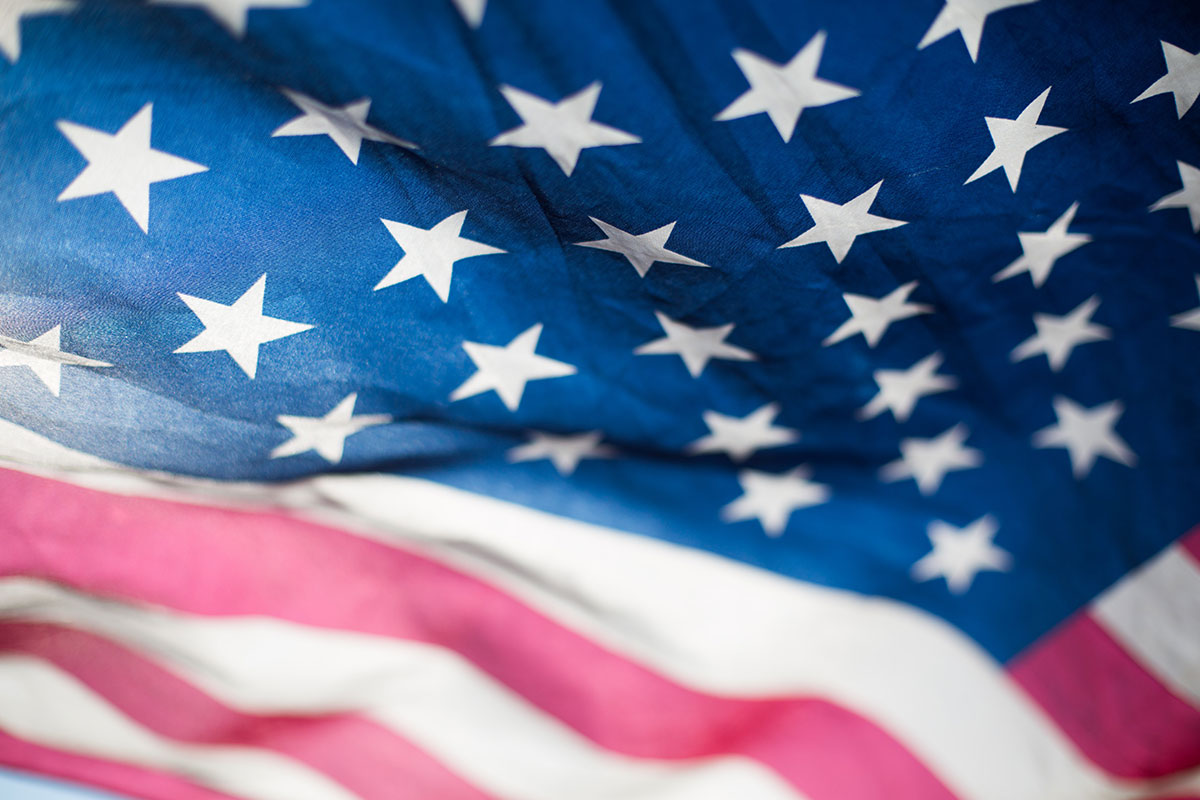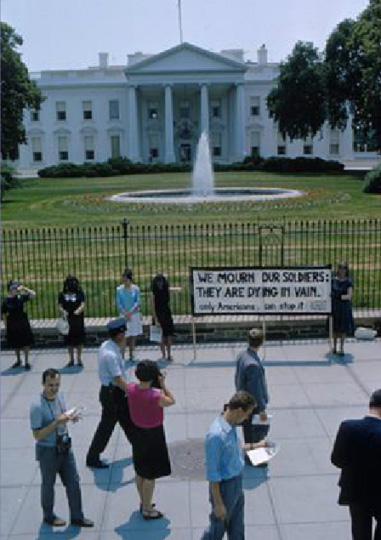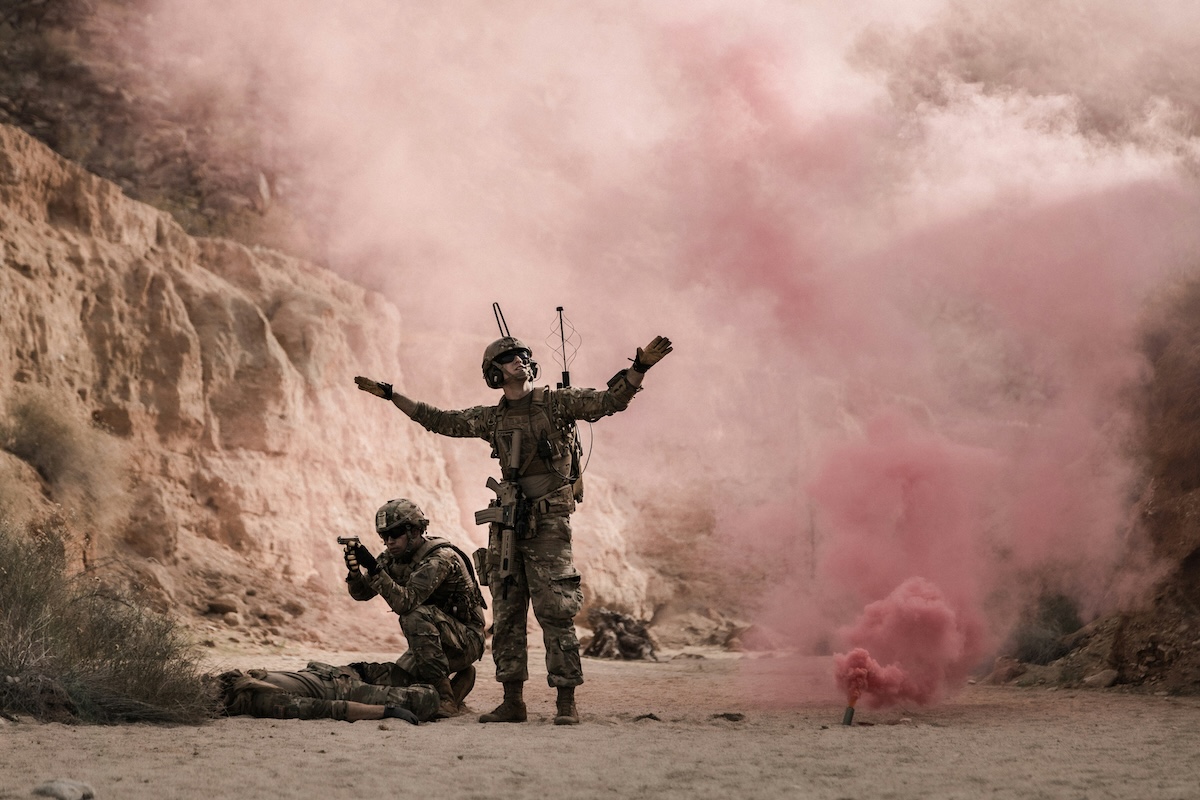In the darkness of a Hattiesburg evening in spring, I balanced a cocktail on my knee while squeezing onto my coworker’s couch to make room when three soldiers knocked on the door to join. These three young, white American men boisterously recounted run-ins with colleagues and derided the Navy. Then, when talking about civilian casualties of the wars in the “War on Terror,” one of the men replied that Middle Eastern children are less innocent than American children. He said that children born in the Middle East don’t need as much protection as American children do. His friends agreed.
This philosophy about the comparative importance of American lives is not just an idiosyncratic rambling of a 20-something-year-old soldier made verbose by Corona Light. This is the kind of opinion that the military industrial complex supporters hold. Other young men like him remark on the comparative superiority of American values and American lives at parties, on dates and with strangers. However, these three soldiers confirmed what is often left unacknowledged: A nationalistic ideological defense requires an equal and opposite denigration.
Our American military industrial complex depends upon American nationalism for its existence. As George Orwell wrote, a nationalist “may be a positive or negative nationalist—that is he may use his mental energy in boosting or in denigrating,” but he “thinks solely, or mainly, in terms of competitive prestige.” It is impossible to defend American nationalism, a positive projection of what is “distinctly American,” without implicating the cultures and lives of those against whom military nationalism deems violence appropriate.
Valorizing American Identity with Dehumanization
After World War II, the U.S., now situated as a world military power, became a primary importer of oil from the Middle East. America began exerting a direct influence in the region, from diplomacy to direct CIA involvement in the 1953 coup of Iranian prime minister Mohammad Mosaddegh.
Beginning in that period, American political and public rhetoric evolved into a language that elevated American values contrasted against currents in the Middle East: communism, nationalism, anti-colonialism. The Iran Hostage Crisis of 1979 spawned a fear of terrorism, which became wrongly synonymous with Islam in the minds of the American public. The Crisis led to an incorrect conflation of terrorism with Iranian and Muslim cultures, which many in D.C. exploited as a means of valorizing American identity.

In response to American guards at Abu Ghraib torturing Muslim prisoners, George W. Bush said, “The Americans I know went to Iraq to promote freedom.” This deceivingly simple statement separates Americans from Iraqis, lauds American values and praises American soldiers. Bush’s response constructs a reality where Americans would never perpetuate atrocities, despite direct evidence to the contrary staring him in the face.
Nearly immediately afterward, when Al-Qaeda’s video of American Nicholas Berg’s decapitation began to circulate, Rush Limbaugh declared, “They are the ones who are subhuman. They are the ones who are human debris, not the United States of America and not our soldiers.” This statement minimizes American violence in the Middle East through deflection.
The point here is not that one cannot meaningfully contrast American military soldiers and Al-Qaeda soldiers, but rather that two of the most prominent American political voices refused to appreciate the significance of the violence their soldiers had inflicted. Instead, Limbaugh and Bush reacted with over-idealization and hypocrisy. Both of them are unable to admit that American soldiers tortured Muslim prisoners.
The construction of a valorized, idealized American identity that depends upon vilifying other identities is imperative in sanctioning violence against non-Americans.
Degrading, vitriolic, dehumanizing language regarding enemies makes it easier to perform acts of violence. As British-Australian scholar Sara Ahmed writes, “The politics of racial hatred involves attributing racial others with meaning, a process we can describe as the making of ‘unlikeness.’” Dehumanization enables political leaders to construct a wartime enemy who we are allowed to hate—and harm—because they are so dissimilar to the American citizen. A study conducted in 2020 found that Americans who see themselves as very different from and more evolved than Iranians are more likely to condone nuclear attacks and civilian casualties.
The development of empathy is shown to reduce tolerance for war. “It is such a minority that is still creating that problem over there,” said one American soldier who had been stationed in Iraq. Iraqi people “just want to wake up in the morning and know their families are safe.”

Sara Ahmed writes about the processes where certain individuals become seen as “legitimate objects of emotion.” She asks how specific figures become valid to mourn, love, pity, fear and hurt. In the imagination of the white American soldier that I met one night in south Mississippi, American children are to be loved and protected, and those who would seek to harm them are automatically enemies. Yet, Middle Eastern children are not valid recipients of this soldier’s mourning, pity or love. Their lives aren’t worth protecting. This is dehumanization.
George Orwell wrote, “Every nationalist is capable of the most flagrant dishonesty, but he is also—since he is conscious of serving something bigger than himself—unshakably certain of being in the right.” In Orwell’s estimation, a nationalist’s firm commitment to their larger cause—identification with and protection of their nation, however they define it—enables them to ignore evidence contrary to their beliefs.
So, it would not matter if I argued about the nature of innocence, protection or childhood, or even if I was able to convince the soldier that their valuation of human life was based on a deep-seated xenophobia. The soldier had an unshakeable commitment to protecting American lives and, knowing that his colleagues and mentors were complicit in the killing of thousands of children in the Middle East, he must formulate a belief about the comparative value of lives in order to justify his overarching belief in the competence of the American military system.
All Human Life Is Valuable
American history is littered with anti-war movements, from the Quakers’ protests against the Revolutionary War to the Women’s Peace Parade against what would become known as World War I. Yet, the longest sustained protests occurred in the 1970’s against the Vietnam War, partially due to the draft of more than 2 million men.

The American military has only grown throughout the 21st century, yet it has not produced any sustainable anti-war movements near the scope of the Vietnam War protests. Protests diminished in the 1975 institution of voluntary service coupled with other post-Vietnam reforms.
Although the military transitioned into the periphery of American consciousness, more a tool for political virtue signaling than a legitimate object for reform, our government still exponentially funds and proliferates hundreds of bases around the world. These bases can encourage warmongering and undermine diplomatic efforts. Meanwhile, our maturing active-duty base has become increasingly tribal and nationalist.
America has not seen war on its soil since 1865, and our country hasn’t been attacked outright since 2001. And there are no foreign bases on American soil. In contrast, as journalist Dr. Maha Hilal writes in her 2021 book, “Innocent Until Proven Muslim,” “Death can arrive in an instant to a civilian family in Iraq.”
The military industrial complex has bloated massively since the 1960s. This vast web of bureaucracy, industry, central planning, weapons and arms dealers, and domestic suppliers is simultaneously embedded with news outlets and politicians connected to and who receive funds from arms dealers and oil magnates.
This system encourages the interrelation of profit and war on a massive scale.
The American government backed many corporations in their efforts to sell weapons to Saddam Hussein and aided in the deployment of chemical weapons amidst the Kurdish genocide. During the “War on Terror,” U.S. corporations’ financial interest in oil dictated war strategy. The U.S. 2022 ban on Russian oil imports has caused the Biden administration to rethink strategic partnerships with other governments including Saudi Arabia and Iran.

The act of holding widespread protests, as during Vietnam, is an argument that other realities are possible and that the status quo must change. If current and future generations are to stand against the massively powerful American military, we have to first acknowledge that the status quo can change. Just because our military system exists in its current form does not mean that it should, nor that it would be impossible to critique and change it.
The robust interconnection between media, money, arms, oil and military interests is neither the only nor the best option for the defense of democracy. We enter conflict for many entangled financial motivations, and it is lauded as a democratic effort. Causes are supported rhetorically while historic sites are destroyed, thousands of miles away from the Americans who are fueling their car with less expensive gasoline.
As is, concentrations of capital, power and oil have come to dictate well-being, apparent worth of life, longevity and environmental devastation. While military classes have long been deployed on behalf of powerful rulers seeking to supplement their wealth and power, war’s new evolution into a totalizing American global interventionism is not a fixed reality that will persist forever. We do not need to accept this reality.
Anti-warism does not imply absolute pacifism, although it is a rhetorically absolutist stance against war itself. Despite how the Army has pitched the soldier in combat as superheroic, warrior-like and video-game-adjacent, war is horrible. It is dangerous to conceive war as anything other than a conflict of power in which victory is made possible only through killing and environmental devastation.
The anti-war paradigm announces that no human being is more valuable than another, nor that any child is more or less worthy of protection. In the same way that being pro-war requires nationalism, being anti-war is anti-nationalist. It is a method of standing against all reductive dehumanizing attitudes that serve to segregate the human population.
To be anti-war is to oppose the actions of a government that prefers to spend (and to waste) millions of dollars on the military rather than on what Martin Luther King, Jr. described as “programs of social uplift.”
“Anti-war” implies an essential moral positioning that views war as unacceptable in a society that has become complacent in the face of an ever-metastasizing military industrial complex.
This MFP Voices essay does not necessarily represent the views of the Mississippi Free Press, its staff or board members. To submit an essay for the MFP Voices section, send up to 1,200 words and factcheck information to azia@mississippifreepress.org. We welcome a wide variety of viewpoints.






